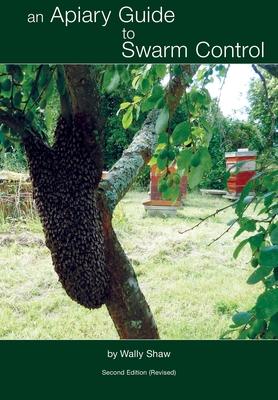The beekeeper needs to understand that swarming is simply reproduction. All the complex, integrated behaviour that occurs within a honey bee colony has evolved simply to improve its chance of successful reproduction. Most beekeeper's primary interest is just one aspect of this behaviour, namely the collection of nectar and the storage of honey. In order to produce the maximum amount of harvestable honey, the beekeeper seeks to create large colonies but also to prevent them from achieving their natural destiny through swarming - so there is an inherent conflict involved. The only way of addressing this is through swarm control.In their book entitled Bait Hives for Honey Bees , Seeley and Morse state that, Mature colonies have a natural urge to swarm each year unless weakened by disease or mismanagement . So perhaps we should not be surprised or regard it as dysfunctional when colonies swarm. Most beekeeping books understate swarming but its control is vital if good honey crops are to be consistently obtained. There is no doubt that swarm control is simultaneously the most important and most difficult aspect of colony management.

The beekeeper needs to understand that swarming is simply reproduction. All the complex, integrated behaviour that occurs within a honey bee colony has evolved simply to improve its chance of successful reproduction. Most beekeeper's primary interest is just one aspect of this behaviour, namely the collection of nectar and the storage of honey. In order to produce the maximum amount of harvestable honey, the beekeeper seeks to create large colonies but also to prevent them from achieving their natural destiny through swarming - so there is an inherent conflict involved. The only way of addressing this is through swarm control.In their book entitled Bait Hives for Honey Bees , Seeley and Morse state that, Mature colonies have a natural urge to swarm each year unless weakened by disease or mismanagement . So perhaps we should not be surprised or regard it as dysfunctional when colonies swarm. Most beekeeping books understate swarming but its control is vital if good honey crops are to be consistently obtained. There is no doubt that swarm control is simultaneously the most important and most difficult aspect of colony management.
The beekeeper needs to understand that swarming is simply reproduction. All the complex, integrated behaviour that occurs within a honey bee colony has evolved simply to improve its chance of successful reproduction. Most beekeeper's primary interest is just one aspect of this behaviour, namely the collection of nectar and the storage of honey. In order to produce the maximum amount of harvestable honey, the beekeeper seeks to create large colonies but also to prevent them from achieving their natural destiny through swarming - so there is an inherent conflict involved. The only way of addressing this is through swarm control.In their book entitled Bait Hives for Honey Bees , Seeley and Morse state that, Mature colonies have a natural urge to swarm each year unless weakened by disease or mismanagement . So perhaps we should not be surprised or regard it as dysfunctional when colonies swarm. Most beekeeping books understate swarming but its control is vital if good honey crops are to be consistently obtained. There is no doubt that swarm control is simultaneously the most important and most difficult aspect of colony management.
Paperback
$16.95